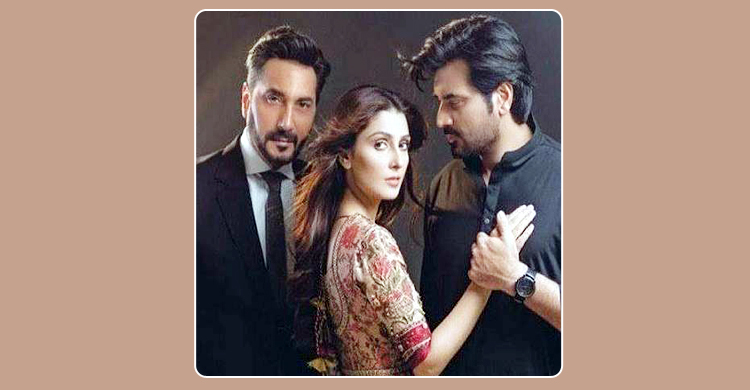The ‘good’ women and ‘bad’ women of serials

A popular TV show in Pakistan has triggered debates on how women are depicted in serials.
Last month, Pakistanis saw the finale of the superhit drama serial, Meray Paas Tum Ho (MPTH). The drama was such a hit that its finale was screened in cinemas across Pakistan and was watched by 80 million viewers. But the most watched TV show in Pakistan, which had 23 episodes that ran from August, has also triggered heated debates both online and offline on its depiction of women. A petition was filed in a court to stop its screening as, according to the petitioner, the story was giving a bad impression of women. It was dismissed.
MPTH was a tragic romance series written by Khalil-ur-Rehman Qamar. The story is about a love triangle where a married woman (Mehwish) falls in love with another married man (Shehwar). She leaves her husband (Danish) for her lover but the latter’s wife throws her out and sends her husband to jail. She then tries to go back to Danish but he dies at the end of the series. Qamar has recently faced a lot of criticism for his sexist and misogynist views. In one interview, he said it is not in a woman’s nature to be unfaithful and if she is unfaithful, she isn’t a woman. “Women should gang rape men if they want equality,” he said in another.
Critics of the show argued that the ‘good’ women and ‘bad’ women binary the MPTH presents is essentially misogynistic.
Tasneem Ahmar, founder and director of Uks, a research centre that focuses on the women-media relationship, says MPTH was no different from 99.9% of dramas on Pakistani TV channels. “It was as sexist, repressive and regressive as the others. The dialogues were not new to our ears; in fact, some dramas have had much worse content. MPTH reflects a mindset that reduces women to less than objects, shunning them as ‘bad’ women. It was a lethal combination of sexism, chauvinism and patriarchy, bordering on misogyny. Our TV plays are immensely popular with all sections of our society, if only our writers, producers, directors and actors could realise that this popularity could also become pivotal in making a change — from regressive to progressive.”
Zebunnisa Burki, a journalist and academic, however doesn’t believe in taking the makers of such shows to court. MPTH presents a rather interesting case study of ‘big business’ media, entertainment, activism and social media all overlapping into a confused mashup of outrage on all sides, she said. “Like 80% of Pakistani drama series, MPTH followed largely the same tropes we see on TV every single day.
In Ms. Burki’s views, at times people can’t separate the drama from the writer, “who holds the most odious opinion on women”. “We need better writers; we need better decision-makers and we also need to recognise the fact that stunts like taking a TV drama to court will only trivialise any valid critique.”
‘Ridiculing women’
In the petition filed at the Sindh High Court, lawyer Sana Saleem had said the series was “ridiculing a woman who makes the same decision as every other man in society”.
Ms. Burki said, “Our pop culture/entertainment issues won’t be resolved by hashtag activism by a privileged few. We need to make sure we encourage the lost art of critical thinking among the young; without that, we will probably only produce Khalil-ur-Rehman Qamars and blockbusters like MPTH.”
Actor and model Iffat Omar says she believes a writer has full rights over storytelling. The real controversy started when Qamar gave interviews in which he made controversial comments. “It was then that we started watching his drama MPTH in light of his views. I had a problem with the ending — both the male and female protagonists are disloyal to their spouses but the husband of the female lead dies and the man’s wife accepts the husband back [But he doesn’t go back to his wife in the serial because he says that he is not worthy of his wife]. So they show that it is in the nature of women to forgive cheating partners but men can’t take it and they’d rather die. This is pretty sick. Women don’t demand equality to rape men but at least we expect that men would know how hard it is for women to deal with cheating and unfaithfulness.”
Writer and Anchor Ayesha Jahanzeb feels Pakistani women and women, in general, have never been represented the way they actually are in serials. “In MPTH, I found both female characters shallow. Qamar’s women are flawed with tragic traits, whereas the men are very rounded characters. In reality, women handle situations very differently and not how Qamar has depicted them.”
Source: The Hindu



